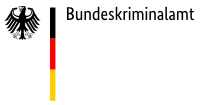The BKA
The Bundeskriminalamt dates back to March 1951. At that point in time, the ”Law on the Establishment of a Federal Criminal Police Office” came into force. A short time afterwards the ”Criminal Police Office for the British Zone” in Hamburg became the Bundeskriminalamt (Federal Criminal Police Office), abbreviated BKA. Legislators thus acted on the authority granted by the German Constitution to set up central agencies at Federal level for police information and communications as well as for criminal police work. Wiesbaden was designated as the headquarters for the new criminal police agency that same year.
The development of the Bundeskriminalamt (BKA) as the criminal police of the Federation over more than 50 years must be viewed in the context of social and political developments as well as technical progress.
The orientation, build-up and expansion of the Bundeskriminalamt are, and always have been, closely tied to the national and international development of crime and the specific role of the BKA within the existing security architecture in Germany, Europe and the world.
Constant changes in the forms and means of the commission of crime, as well as the criminal geographical regions, make enormous demands on the police. The Bundeskriminalamt has been facing these for more than 50 years with constant review and adjustment of its working methods and organisational structures, in order to ensure the competent performance of its duties at all times.
The early years were marked by the build-up of the BKA as the national central police agency and the international co-operation. In the 70’s and 80’s, the terrorist activities of the Red Army Faction not only had a decisive influence on the work of the Bundeskriminalamt but also kept the entire country in suspense.
As of the mid-80’s, besides continuing its battle against terrorism, the Bundeskriminalamt concentrated above all on dealing with the growth of international drug trafficking and the spread of organized crime.
The reunification of Germany in a uniting Europe was an outstanding mark of the closing 20th century. Now, at the beginning of the new millennium, the Bundeskriminalamt faces the challenge posed by breathtaking progress in the fields of information and communications technology, which criminals also use for their purposes. In addition, since the terrorist attacks in the United States on September 11, 2001, the battle against international terrorism has become the focal point of security policy throughout the world.
It poses a great challenge to security agencies at national and international level and makes it necessary to review our own organisation and the interaction with other agencies of the security architecture.
The resulting new organisation of the state security division of the Bundeskriminalamt distinctly strengthens our investigative potential in the fight against international terrorism. With the creation of the ”Joint Counter-Terrorism Centre” (GTAZ) at our site in Berlin in December 2004, in which information on international terrorism is collated and analysed by various agencies, the fight against terrorism has taken a major step forward. These measures are supplemented by the newly founded division ”International Coordination” in January 2005, which should bring about a further improvement of the co-operation with our international partners.
The successful performance of the duties of the Bundeskriminalamt is guaranteed by more than 7.000 employees from 70 different professional groups, whose dedication and creativity ensure the BKA’s excellent reputation the world over as a competent partner in the fight against crime.


